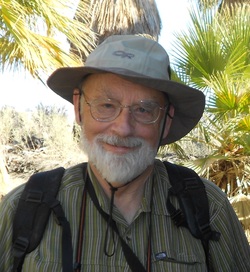
This paper interprets a dictum of Yatsuka Ishihara, "I believe that it is crucial for haiku to tell about the truth as if it were false." Mr. Ishihara was a great haiku sensei in Japan. He was very kind and generous to American delegates to the Haiku Society of America-Haiku International Asssociation meeting in Tokyo some years ago. His friends and admirers were saddened by his death in the following year.
The title quotation originated in Mr. Ishihara’s talk at the HSA-HIA Conference in Chicago that preceded the Tokyo Conference. Gallagher missed that event, but heard him provide an expanded version of the statement. In responding to a request for an explanation, Mr. Ishihara elaborated on his earlier dictum. He spoke in an deliberate style that sounded to me much like chanting. While "Tell about the truth as if it were false" has the appearance, perhaps, of a Zen koan, Ishihara clearly was trying to tell American haiku poets something very meaningful to him, and Gallagher hopes he has understood it.
What he believes Ishihara means is that haiku should be more than inscriptions of natural scenes, that the best haiku will go beyond and in a humorous way exaggerate the literal truth. In his statement the "as if it were false" means to use language in a way that cannot possibly be taken by the reader as literally true. His admonition is not for the use of metaphor, but rather hyperbole, the figure of speech that denotes extravagant exaggeration or depicting the impossible as real.
Patrick Gallagher has contributed to many haiku books and publications as an essayist, poet, editor, designer, and/or production manager. Patrick has been active continuously in haiku since the early 1990's. He has served as president of the Haiku Poets of Northern California, and for many years on the executive committee of that group and of the Yuki Teikei Haiku Society. In addition, he was a featured poet at two of the Haiku Poets of Northern California's Two Autumns readings, with work appears in A Path to the Sea [with Dan Brady, Helen K. Davie, and Evelyn Hermann-- edited by Christopher Herold] (Two Autumns Press, 1996); and If I Met Basho [with Pamela Miller Ness, Laurie Stoelting, and Karma Tenzing Wanchuk--edited by w. f. owen] (Two Autumns Press, 2005). A collection of his poems and those of three other poets placed first for anthology in the National Haiku Book Awards for 2005.
 RSS Feed
RSS Feed
